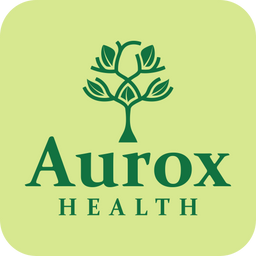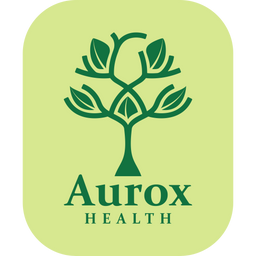Introduction: Essential Nutrients for Strong Bones🦴💪
Maintaining healthy and strong bones is crucial for overall well-being and mobility. Bones provide structure, protect organs, anchor muscles, and store calcium. As we age, bone density can decrease, leading to conditions such as osteoporosis, which increases the risk of fractures. Ensuring good bone health helps in maintaining an active and independent lifestyle. While a balanced diet and regular exercise play key roles, certain dietary supplements can provide the extra boost needed to maintain bone strength and prevent osteoporosis.
Dietary supplements play a significant role in supporting bone health. They provide essential nutrients that may be lacking in our diets, helping to strengthen bones and improve overall skeletal health. In this article, we will explore key supplements that are essential for strong bones and how they can benefit you.
From the article you will learn:
- Top 5 Supplements for Strong Bones
- Additional Nutrients
Calcium 🥛🦴
Calcium is a vital mineral for maintaining bone density and strength. It is the primary component of bones and teeth, and about 99% of the body's calcium is stored in the bones. Adequate calcium intake is crucial throughout life, particularly during childhood, adolescence, and older age when bone mass is being built and maintained.
Calcium is essential for building and maintaining strong bones and teeth. It supports the proper function of the heart, muscles, and nerves. Adequate calcium intake helps prevent bone loss and reduces the risk of osteoporosis and fractures.
Food sources rich in calcium include:
-
Dairy products like milk, cheese, and yogurt
-
Leafy green vegetables such as kale and broccoli
-
Fortified foods like orange juice, cereals, and plant-based milk
-
Fish with edible bones like sardines and canned salmon
When dietary intake is insufficient, calcium supplements can help meet the recommended daily intake. The two most common forms of calcium supplements are:
-
Calcium Carbonate: Contains a high amount of elemental calcium (40%) and is best taken with food for better absorption.
-
Calcium Citrate: Contains less elemental calcium (21%) but is more easily absorbed by the body, making it a good option for older adults or those with low stomach acid.
Consulting with a healthcare provider can help determine the best form and dosage of calcium supplement for individual needs.
Vitamin K2 🍗🦴
Vitamin K2 is essential for bone health, playing a critical role in directing calcium to the bones and preventing the calcification of arteries.
In terms of bone health, Vitamin K2 activates osteocalcin, a protein crucial for binding calcium to the bone matrix. This process promotes bone strength and density, contributing to overall bone health.
Moreover, Vitamin K2 ensures proper calcium regulation in the body. It helps direct calcium to be deposited in the bones and teeth rather than accumulating in soft tissues. By preventing arterial calcification, Vitamin K2 supports cardiovascular health and reduces the risk of associated issues like artery stiffness and plaque buildup. This mechanism is crucial for maintaining arterial health and overall cardiovascular function.
Rich dietary sources of vitamin K2 include:
-
Fermented Foods: Natto (fermented soybeans), sauerkraut, and kimchi
-
Animal Products: Chicken, liver, beef, and pork
-
Dairy Products: Cheese, particularly aged varieties like Gouda and Brie
-
Eggs: Especially those from free-range chickens
Vitamin K2 comes in two main forms, each with unique benefits:
-
MK-4 (Menaquinone-4): Found in animal products and is the primary form used by the body. It has a shorter half-life and may need to be taken more frequently. Supports bone health and arterial flexibility.
-
MK-7 (Menaquinone-7): Found in fermented foods and has a longer half-life, allowing for once-daily dosing. More bioavailable and longer-lasting, providing sustained support for bone and cardiovascular health.
Consulting a healthcare provider can help determine the appropriate form and dosage of vitamin K2 supplements based on individual health needs.
Vitamin D ☀️🍊
Vitamin D plays a crucial role in maintaining bone health by promoting calcium absorption in the gut. Without sufficient vitamin D, bones can become thin, brittle, or misshapen. Adequate levels of this vitamin are essential for proper bone growth and remodeling.
Vitamin D enhances the absorption of calcium from the digestive tract and maintains adequate serum calcium and phosphate levels for normal bone mineralization. It supports bone growth and remodeling by osteoblasts and osteoclasts, reducing the risk of bone disorders such as rickets in children and osteomalacia in adults.
Sources of Vitamin D: Sunlight, Food, and Supplements
-
Sunlight: The body can produce vitamin D when the skin is exposed to ultraviolet B (UVB) rays from the sun. Approximately 10-30 minutes of midday sun exposure several times per week can help maintain adequate levels.
-
Food: Vitamin D is naturally present in a few foods and can be added to others. Rich sources include:
-
Fatty fish such as salmon, mackerel, and sardines
-
Fish liver oils
-
Fortified foods like milk, orange juice, and cereals
-
Egg yolks and beef liver
-
When natural sources are insufficient, supplements can help meet the recommended intake. They are particularly useful in areas with limited sunlight. There are two main types of vitamin D supplements:
-
Vitamin D2 (Ergocalciferol): Derived from plant sources and fungi. It is commonly used in fortified foods and some supplements.
-
Vitamin D3 (Cholecalciferol): Derived from animal sources and synthesized in the skin. It is considered more effective at raising and maintaining vitamin D levels in the blood.
Choosing the right type and dosage of vitamin D supplement can be discussed with a healthcare provider, especially if you have specific health conditions or limited sun exposure.
Collagen 🦴✨
Collagen is crucial for maintaining the integrity and health of bones and joints, serving as a major component of the bone matrix and connective tissues.
In terms of bone health, collagen provides a scaffold for the deposition of calcium and other minerals, contributing to bone strength and flexibility. This structural support is essential for maintaining the integrity of the bone matrix.
Additionally, collagen plays a vital role in joint health by helping maintain the structure and integrity of cartilage. Cartilage acts as a cushion for joints, facilitating smooth movement and reducing friction. By supporting cartilage health, collagen promotes joint flexibility and mobility.
Moreover, collagen is essential for the health of skin, tendons, and ligaments. It contributes to the structural integrity of these tissues, promoting overall mobility and flexibility. This ensures that the body's connective tissues can withstand stress and strain, reducing the risk of injury and supporting overall musculoskeletal health.
Sources of Collagen: Food and Supplements
Collagen can be obtained from various dietary sources and supplements:
-
Food Sources:
-
Bone Broth: Rich in collagen, amino acids, and minerals.
-
Fish: Skin and bones are good sources.
-
Chicken: Particularly in the skin and cartilage.
-
Egg Whites: Contain proline, an amino acid essential for collagen production.
-
Gelatin: A cooked form of collagen, found in some desserts and culinary applications.
-
-
Supplement Forms:
-
Collagen Peptides: Hydrolyzed form that's easily absorbed.
-
Collagen Powders: Versatile and can be added to drinks and recipes.
-
Collagen Capsules: Convenient for on-the-go supplementation.
-
Types of Collagen Supplements (Type I, II, III) and Their Benefits
Different types of collagen offer specific benefits:
-
Type I Collagen: Found in skin, bones, and tendons. Supports skin elasticity, bone strength, and overall structural integrity.
-
Type II Collagen: Primarily found in cartilage. Supports joint health by maintaining cartilage and reducing joint pain.
-
Type III Collagen: Found in skin, muscles, and blood vessels. Supports skin health, muscle structure, and vascular health.
Collagen supplements can be taken daily to support overall bone and joint health, promoting a strong skeletal structure and reducing the risk of joint-related issues.
Magnesium 🥦🦴
Magnesium is a vital mineral that plays a crucial role in bone formation and maintaining bone density. It supports various bodily functions, including the structural development of bones.
Magnesium contributes to bone health in several ways. Firstly, it is necessary for converting vitamin D into its active form, which in turn aids in calcium absorption and bone formation. Secondly, adequate levels of magnesium help maintain bone density, thereby preventing conditions like osteoporosis. Additionally, magnesium activates enzymes involved in bone building and remodeling processes.
Moreover, magnesium plays a role in calcium regulation, ensuring proper balance in both bones and blood. By helping regulate calcium levels, magnesium prevents the calcification of soft tissues, contributing to overall bone health and integrity.
Rich dietary sources of magnesium include:
-
Nuts and Seeds: Almonds, cashews, and pumpkin seeds
-
Leafy Green Vegetables: Spinach, Swiss chard, and kale
-
Whole Grains: Brown rice, quinoa, and whole wheat
-
Legumes: Black beans, lentils, and chickpeas
-
Fruits: Bananas and avocados
-
Fish: Mackerel and salmon
-
Dairy Products: Milk and yogurt
Magnesium supplements come in various forms, each with different absorption rates and benefits:
-
Magnesium Oxide: Contains a high amount of elemental magnesium but has lower bioavailability. It's often used for its laxative effect.
-
Magnesium Citrate: Better absorbed than oxide and commonly used to improve digestion and alleviate constipation.
-
Magnesium Glycinate: Highly bioavailable and gentle on the stomach, making it a preferred choice for those with sensitivities and for overall magnesium supplementation.
Consulting with a healthcare provider can help determine the most suitable magnesium supplement and dosage based on individual health needs.
Additional Nutrients and Conclusion 🌿💪
|
Nutrient |
Role |
Sources |
Supplements |
|---|---|---|---|
|
Supports bone formation and mineralization. |
Meat, shellfish, legumes, seeds, nuts |
Zinc gluconate, zinc citrate |
|
|
Aids in calcium and magnesium metabolism, supports bone growth. |
Fruits (apples, pears), nuts, legumes |
Boron citrate, boron glycinate |
|
|
Reduce inflammation, support bone density. |
Fatty fish (salmon, mackerel), flaxseeds, chia seeds |
Fish oil, flaxseed oil capsules |
While calcium, vitamin K2, vitamin D, collagen, and magnesium are critical for bone health, other nutrients also play a significant role in maintaining bone strength and density. These additional essential nutrients, including zinc, boron, and omega-3 fatty acids, contribute to overall bone health and support bone formation, mineralization, and growth. Incorporating these nutrients into your diet through food sources or supplements can help ensure optimal bone health and reduce the risk of bone-related issues.
Maintaining strong bones requires a holistic approach. Eating healthy food with all needed nutrients is important. Regular exercises like walking, running, and lifting weights help keep bones strong and dense.Strong bones are the foundation of a healthy life. Start supporting your bone health today by incorporating these essential nutrients into your diet. Explore and purchase high-quality bone health supplements from our e-commerce store to ensure you get the right nutrients for optimal bone strength and overall well-being.






